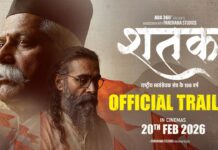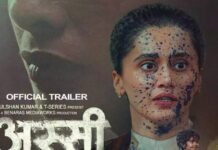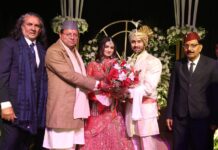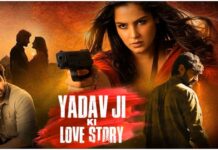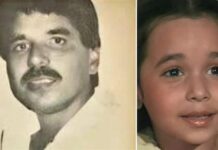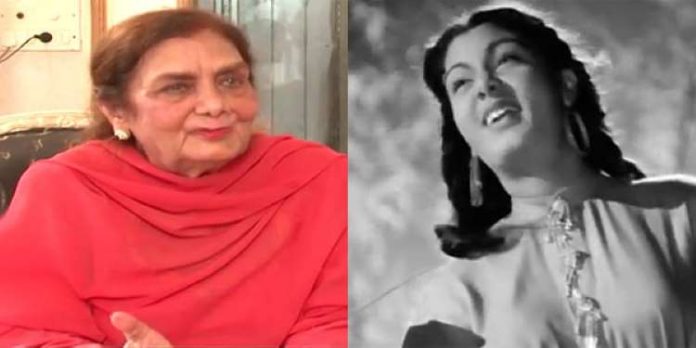Veteran actress Nimmi passed away a few hours back at Criti Care Hospital at Andheri in Bombay. She was 87 years old and had not been keeping good health. Her real name was Nawab Banoo but she was better known by her stage name, Nimmi, which was given to her by Raj Kapoor. She achieved stardom in the 1950s and early 1960s. She was known for playing spirited village belle characters, but she also worked in films of diverse genres such as fantasy and social films. Among her best performances are in Sazaa (1951), Aan (1952), Uran Khatola (1955),
Bhai-Bhai (1956), Kundan (1955), Mere Mehboob (1963), Pooja Ke Phool (1964), Akashdeep (1965), and Love And God (1986).
Nawab Banoo was born in Agra to a Muslim family. Her mother, Wahidan, was a courtesan, a singer and an actress who was well connected within the film industry. Her father, Abdul Hakim, worked as a military contractor. Her mother was on good terms with Mehboob Khan and his family, who were prominent and influential in the film business. When Nimmi was only eleven years old, her mother died suddenly. Her father lived in Meerut where he worked and had a family; by this time, his contact with Nimmi’s mother was minimal. Nimmi was, therefore, sent to live in Abbottabad near Rawalpindi with her maternal grandmother. The partition of India happened in 1947, and Abbotabad fell in Pakistan. Nimmi’s grandmother moved to Bombay and settled in the household of her other daughter, known by the name Jyoti. Herself a former actress, Jyoti was married to G.M. Durrani, a popular Indian playback singer, actor and music director.
In 1948, Mehboob Khan invited young Nimmi to watch the making of his current production Andaz at Central Studios as she had shown an interest in movies. On the sets of Andaz, Nimmi met Raj Kapoor who was starring in the film.
At that time, Raj Kapoor was making Barsaat (1949). Having already cast Nargis in the female lead role, he was on the lookout for a young girl to play the second lead. After observing Nimmi’s unaffected and shy behaviour as a guest on the sets of Andaz, he cast the teenaged Nimmi in Barsaat opposite Prem Nath. Nimmi played the role of an innocent mountain shepherdess in love with a heartless city man.
Barsaat, released in 1949, made history and was critically acclaimed and also a commercial success. Nimmi became an instant hit with the audiences. The film’s popular title song, Barsaat mein hum se mile tum, as well as the other evergreen classics, Jeeya bekarar hai and Patli kamar hai were all picturised on Nimmi. The film’s climax also revolved around the fledgling actress. The huge success of Barsaat made Nimmi a star and nationwide sensation overnight.
After Barsaat, Nimmi was flooded with film offers. She worked with top heroes like Raj Kapoor (Banwara), and Dev Anand (Sazaa, Aandhiyan). She formed a very popular and dependable screen pair with Dilip Kumar, after the success of films like Deedar (1951) and Daag (1952). Nimmi was also a singer but sang her own songs in only one film, Bedardi (1951), in which she also acted.
Mehboob Khan cast her in Aan (1952). This prestigious production was to be India’s first full feature in Technicolor. Such was Nimmi’s popularity at this point that when a first cut of the film was shown to the film’s financiers and distributors, they objected that Nimmi’s character died too early. Therefore, an extended dream sequence was added to give Nimmi more prominence and screen time in the film. Nimmi’s character and her on-screen death dance in Aan were very popular with audiences. Aan was one of the first Indian films to have a worldwide release. The film had an extremely lavish London premiere which Nimmi attended. The English version was entitled Savage Princess. History has it that in the London trip, Nimmi met many Western film personalities including Errol Flynn. When Flynn attempted to kiss her hand, the actress pulled it away, exclaiming, “I am an Indian girl, you cannot do that!” The incident made the headlines, and the press raved about Nimmi as the “…unkissed girl of India”.
Nimmi revealed in a 2013 interview, that at the London premiere of Aan, she received four serious offers from Hollywood, including from Cecil B. DeMille who greatly admired the film and Nimmi’s performance. Nimmi declined these offers, choosing instead to focus on her flourishing career in India.
Nimmi turned producer with Danka (1954) which was released under her own production banner. Nimmi played a memorable double role (mother and daughter) in Kundan (1955), produced by Sohrab Modi and co-starring newcomer Sunil Dutt. In Uran Khatola (1955), her last of five films with Dilip Kumar, she starred in one of the biggest box-office successes of her career. The film’s songs have remained popular to the present day.
Nimmi next had two big hits in 1956 — Basant Bahar and Bhai-Bhai. She was lucky throughout her career to have some of the most popular and enduring songs picturised on her, and appeared in films with super-hit music scores.
Nimmi had retired from films for over two decades by the time K. Asif’s widow, Akhtar Asif, released her starrer, Love And God on 6th June, 1986 in incomplete form.
In an interview with Rajya Sabha TV, Nimmi had recounted that she first saw a photo of her husband, Raza, himself a script writer with Mehboob Studios, during a shooting at Famous Studios. Her hair dresser had shown her Raza’s photo in a film magazine and asked her why she did not get married to him. She liked the idea as she had heard about Raza. Soon, her co-actor, Mukri, also suggested the same. They acted as Cupids, subsequently their parents met, and they got married. The couple did not have children. They subsequently adopted Nimmi’s sister’s son, who now lives in London.
Among the last public events which Nimmi attended was Shemaroo’s An Evening With Living Legends hosted by your editor Komal Nahta at Hotel Novotel in July last year.



